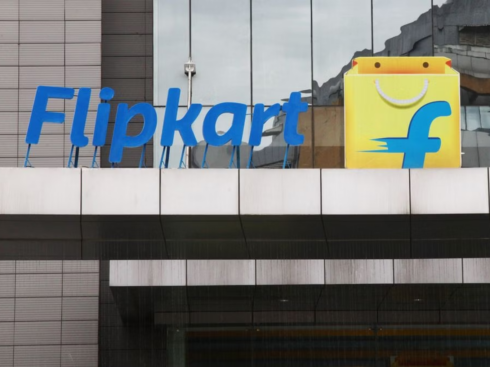
SUMMARY
Last Year In May, Yumist Had Shutdown Its Operations In Bengaluru
Gurugram-based foodtech startup Yumist has shutdown its operations. Founded by former Zomato official, Alok Jain, along with restaurateur Abhimanyu Maheshwari in November 2014, Yumist, served home-style meals prepared in their own kitchens. As per the founders, failure in raising funding was one of the reasons behind the shutdown.
In a detailed blog post, founders, Alok and Abhimanyu mentioned, “We failed to raise the kind of capital that this business required while staying true to the customer problem. In hindsight, there’s a bunch of internal and external factors that led us to this dead end.”
The startup had raised its last funding round in December 2015, when Ronnie Screwvala led Unilazer Ventures, Orios Venture Partners and Steven Lurie, a Valley-based investor-fueled in $2 Mn (about INR 12 Cr) in the company. Prior to this round, the company had raised $1 Mn in February 2015.
However, the founders’ believe,
“In hindsight, we have no complaints and, in fact, are proud entrepreneurs today. Building Yumist gave us the opportunity to work with great minds, work at the cutting edge of food science and technology in all its facets, and create frameworks and supply chains we believe will become industry standards in the near future. The thrill and meaningfulness of the journey supersede any destination we might have hoped to reach.”
Yumist: Born With The Craving To Offer Homely Food At Affordable Prices
As shared by the founders in the blog post, “When we gave birth to Yumist in 2014, we had a singular vision in mind – to make honest, homely food available conveniently at affordable prices. We wanted to build the go-to food brand for the daily meals market in India, a fragmented market serviced largely by unorganised players offering sub-standard food.”
Initially, everything went in their favour. Considering that finding a viable business model which is profitably scalable is a bit difficult, they tried multiple iterations across their supply chain in the last two years.
“There was a time in early 2015 when our bikers had hot meals with them basis a demand prediction algorithm and orders were delivered within 15 mins. We delivered one such order in 2 mins and the customer’s expression was priceless, but our P&L had a different sort of expression,” mentions the blog post.
As per the founders, by March 2017, Yumist had hit the sweet spot. They were making INR 65 in margins per order at an average order serving two people value of INR 190, the delivery outlets were breaking even at just 70 orders a day, and they were acquiring new customers at INR 180 and recovering back this money within 45 days.
“Owing to our product quality and customer experience, we enjoyed good word of mouth (with 50% of our new customers coming through referrals), 70% of our monthly orders were from repeat customers and from March until September we tripled our revenues and gross margins. With these trends, Yumist would have become a profitable company by June 2018.”
What Led To The Shutdown Of The FoodTech Startup
The startup took its first step back in May 2016 when it paused Bengaluru operations. The reason cited for the shutdown was that Yumist did not own a kitchen facility in Bengaluru which stopped them from bringing similar enhancements as NCR and fragmented the brand.
At the same time, Yumist launched a 12000 sq ft, mega kitchen for NCR. The move was aimed to help Yumist significantly upgrade its customer experience. Besides lunch and dinner, the startup expanded its wings and started offering all-day options, breakfast and snacks.
The blog post further mentions, “From launching in a second city prematurely, or committing to a high growth, high burn model just because prospective investors wanted to see that back in 2015, or taking a tad bit too long to find the right business model, we made our mistakes. We learnt from these mistakes and recovered fast, but maybe not too fast.”
As per the founders, problems for the company started in 2016, which, affected growth of the company. “Every company has a context in which it operates – the economic climate, investor sentiment, the sector one operates in. Essentially, there are external factors which one can’t really control. 2016 onwards, foodtech (in the manner the term is loosely used) had amassed a notoriety with investors and media and became almost a dirty word,” stated the blog post.
Towards the end of the blog post, however, the founders seem optimistic and believe that Cloud Kitchens are here to stay and the upcoming generation of startups will be benefitted with their experience. As the blog mentioned,
“At this juncture, some questions haunt us. Had we built Yumist in a different time, would the outcome be different? Would we then have raised enough capital allowing us to build this same business profitably across the Country? Maybe yes, maybe no. We will never know. What we do know is this. Cloud Kitchens are here to stay. It’s probably the case that the first one through the door gets shot. The problem we were trying to solve is a big one and we are certain someone will pick up from where we left. Our wishes and support are with them.”
The Shift Seen In Foodtech Space Between 2016-2017
The mid-2016 period, that Yumist founders talked about was certainly a miserable one for the foodtech industry. The industry is touted to reach $78 Bn by 2018, growing at 16% YoY. The foodtech sector has also witnessed a storm of ‘me-too’ startups during the said period, lacking both – differentiation and innovation. And thus, the results were obvious.
By June 2016, out of the 105 FoodTech startups launched in India, only 58 were active. Between Q1 2015 to Q2 2016, over 37 shutdowns were seen, while, nine went off the picture consolidation via M&A route.
A few of the startups which got shutdown include iTiffin, Eazymeals, Zeppery, Zupermeal, BiteClub, Dazo. While SpoonJoy, Tinyowl, TastyKhana are the ones which got acquired.
Even the most-talked about players started floundering. Take Swiggy, for instance, the startup posted a 65-fold increase in losses for FY 2015-16 at about $21.2 Mn (INR 137.18 Cr) from about $328K (INR 2.12 Cr) in FY 2014-15. For the year ended March 2017, Swiggy reported a loss of about $21.3 Mn (INR 137.18 Cr), as per regulatory filings with RoC. At the time, when raising money has become tough for foodtech startups, it has managed to raise a total of $155.5 Mn in funding which includes the $80 Mn funding round which it raised from Naspers and existing investors at $400 Mn valuation.
Then there is foodtech unicorn Zomato which has declared itself profitable and has also introduced the cloud kitchen model. As per recent reports, Swiggy too is in process of building a new cloud kitchen vertical. Other players in the foodtech space include Faasos, Twigly, Innerchef, HolaChef, HelloCurry, and Petoo.
In all, foodtech space is going through an interesting phase right now, wherein execution and consumer adoption will decide the fate of any startup. Yumist’s shutdown comes at a time when the some of the major foodtech players are moving towards profitability; the sector, as a whole, has started gaining traction after the ”winter” and when global giants like Uber and Google are looking at Indian foodtech space with UberEats and Google Areo respectively. As per Yumist founders ”Cloud Kitchens are here to stay”, however, the real task comes at building and scaling it. Let’s see how Zomato and Swiggy’s move towards cloud kitchen model works for them.


























